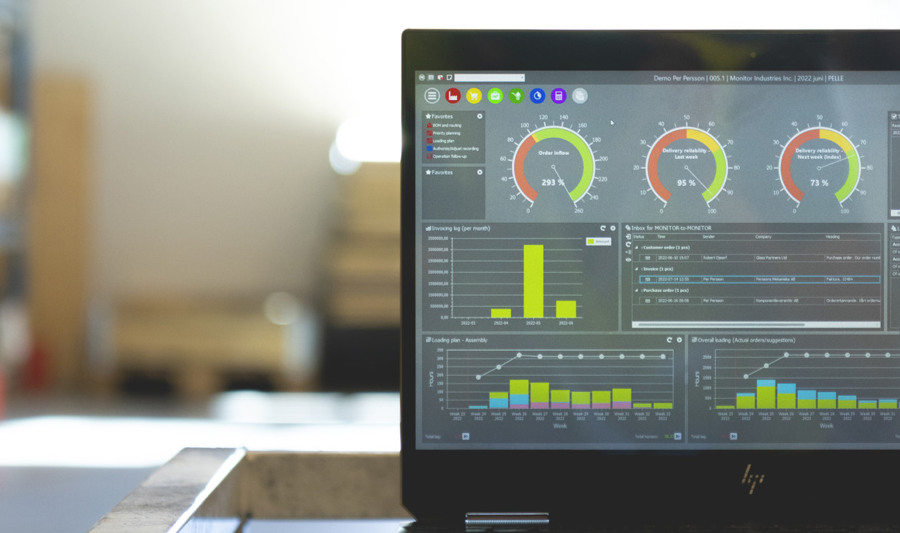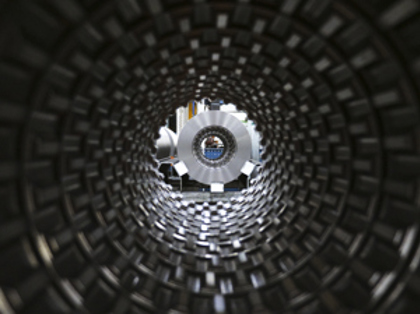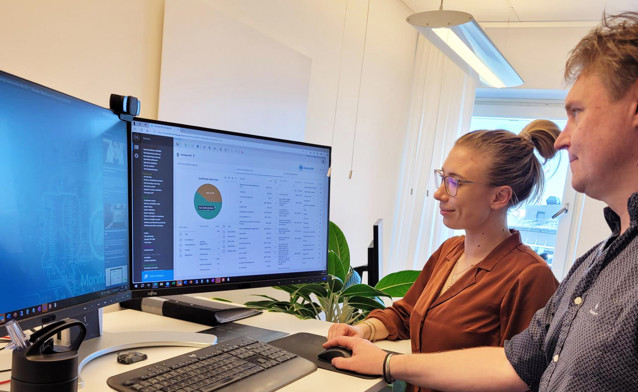
Book your free ERP consultation
Find out what an ERP system is, and how it can help your company.
What is an ERP system, and who is it for?
An ERP (Enterprise Resource Planning) system helps companies manage business processes which are key to achieving success. Its purpose is to optimize all operations within a company. If your company works in the manufacturing sector and is looking for a solution that structures processes, increases profitability, and allows further growth, an ERP system is a key tool in your toolbox.
Why do you need an ERP system?
Why is an ERP system necessary? What can it change, and will it help you improve performance?
An ERP system helps you organize and optimize processes, efficiently manage materials, and boost productivity.
Monitor ERP is an award-winning ERP system optimized for manufacturing companies, managing everything from procuring materials to invoicing for the final product.
Standing in the way of progress
Large numbers of companies still use basic, sometimes obsolete programs and tools, or even the wrong ERP system altogether. This is likely to stand in the way of their growth and negatively impact product quality.

Lack of integration
Perhaps you’re already using an ERP system which doesn’t integrate with other programs, or does not correctly optimize your processes? This can be a barrier to success.

Keeping promises
If requirements, material consumption, or production capacity is not planned correctly, this may cause delays to processes, which negatively affect delivery to the end customer.

Increased efficiency
A standardized ERP system tailored to your business enables you to optimize and structure your processes, boosting profitability, growth, and the success of your company.

Decision-making and automation
Using an ERP system which is integrated with other programs used in your company reduces your administrative workload and improves decision making, making it easier to perform analyses, resulting in greater efficiency.

Quality and punctuality
Effective management, planning, and calculations supported by reports and analysis from the ERP system ensure the correct timeframes are created, so you can keep your promises to your customers.

The aims and objectives of an ERP system
Monitor In-depth – Expert insights and industry know-how
Learn more about Monitor ERP's solutions and industry practices.

Make the move from Excel to Monitor ERP

Your guide to ERP implementation

The art of choosing the right ERP system
Learn from the experience of others
Stories from Monitor customers
Monitor is not just an ERP system. We have 50 years' experience in the manufacturing industry, focused on problem solving and production optimization. Our system is used daily by around 300,000 users worldwide in more than 6,000 manufacturing companies.
Read stories from our customers, who've faced the same issues and challenges as you in their daily work.

ERP System – FAQ
Frequently asked questions on ERP systems.
Does my company really need an ERP system?
To effectively and successfully lead a manufacturing company which aims to achieve growth and profitability, ERP is an important consideration. Implementing an ERP system will enable you to carefully evaluate and optimize business processes, leading to better decision-making.
Is an ERP system suitable for a company of my size?
An ERP system can be used by companies of all sizes. If you want to improve operations and optimize management of resources, you’ll need a good ERP system. Our core modules, which cover every area of a manufacturing company, make Monitor ERP the perfect choice for enterprises, both large and small.
Find out more about our customers, and how they use Monitor ERP
Which ERP system should you choose, and what should you keep in mind?
There are lots of ERP systems on the market, and making the right choice is a complex process involving a range of factors.
The most important thing is to define how the system is going to be used in the company, as well as which functionalities can be decisive in relation to development and process optimization.
What sets Monitor ERP apart is that it is a standardized system which is optimized for manufacturing companies.
What does implementation of an ERP system involve, and how long does it take?
Choosing Monitor ERP gives you access to our extensive knowledge of planning company resources and the manufacturing industry. Our consultants will guide you through the full process with detailed instructions and project management, to ensure things run as smoothly as possible.
As Monitor ERP is a standardized system, implementation normally goes very quickly. We observe and analyze how you work, decide the best way to use Monitor ERP in your company and provide your employees with the knowledge necessary to use the system.
You’ll also have access to our Support Center and the Monitor Academy e-learning platform, which can be a great help during implementation, as well as when questions arise once you’re up and running.
Want to know more about implementation? Have another question? Contact us.







